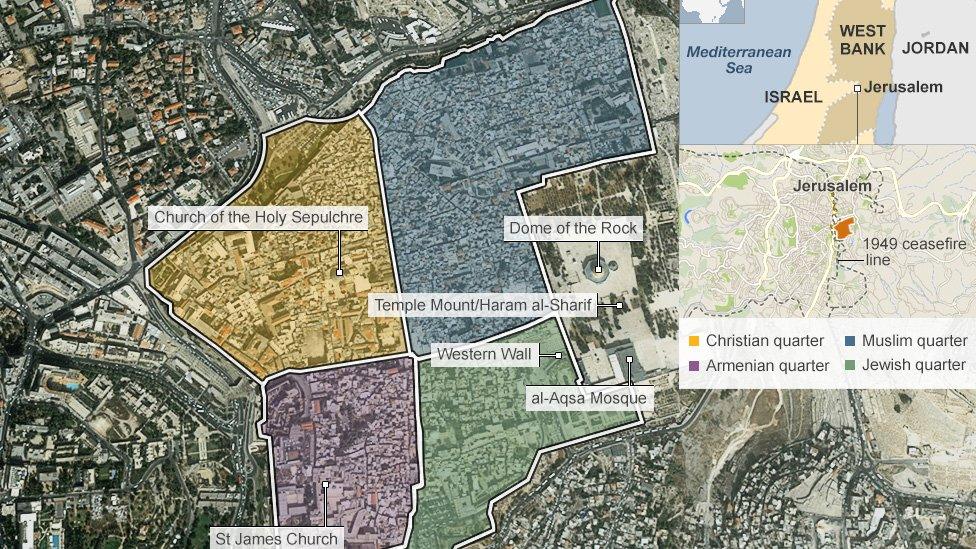Trump's Jerusalem move: Arab allies attack decision
- Published
Jerusalem: The view from one street
Arab officials say US President Donald Trump's recognition of Jerusalem as Israel's capital risks plunging the Middle East into "violence and chaos".
The move ended US neutrality on one of the region's most sensitive issues.
Arab League foreign ministers now say it means the US cannot be relied upon as a broker of Middle East peace.
The statement by 22 countries, including close US allies, comes after a third day of violence and protests in the West Bank and Gaza Strip.
Israel has always regarded Jerusalem as its capital, while the Palestinians claim East Jerusalem - occupied by Israel in the 1967 war - as the capital of a future Palestinian state.
For Mr Trump the decision fulfils a campaign promise and he has said it was "nothing more or less than a recognition of reality".
But he has faced fierce criticism for the decision.
The Arab League resolution was agreed at 03:00 (01:00 GMT) after hours of talks in Cairo. It was backed by a number of US allies, including the United Arab Emirates, Saudi Arabia and Jordan, who had already voiced their concern.
The resolution said:
The US had "withdrawn itself as a sponsor and broker" of any possible Israeli-Palestinian peace process through its decision
Mr Trump's move "deepens tension, ignites anger and threatens to plunge region into more violence and chaos"
A request would be made for the UN Security Council to condemn the move
At an emergency meeting of the UN Security Council on Friday, the US found itself isolated, with the other 14 members all condemning Mr Trump's declaration.
But US ambassador Nikki Haley accused the UN of bias, saying it "has outrageously been one of the world's foremost centres of hostility towards Israel", and that the US was still committed to finding peace.
Analysis: Breaking down what Mr Trump said and what it means for peace
On Saturday, Israel's Prime Minister Benjamin Netanyahu said he had heard "voices of condemnation over President Trump's historic announcement" but had "not heard any condemnation for the rocket firing against Israel that has come and the awful incitement against us".
He will be in Paris on Sunday for talks with President Emmanuel Macron, ahead of meetings with EU foreign ministers on Monday.
Three rockets were fired towards Israel from Gaza on Friday, leading Israel to carry out air strikes in response. It said it hit military sites belonging to the Islamist group Hamas, killing two of its members.
Israeli Defence Minister Avigdor Lieberman said on Sunday: "Our hope is that everything is calming down and that we are returning to a path of normal life."
However, protests and violence continued in a number of nations on Sunday:
Local media reports say there have been clashes outside the US embassy north of the Lebanese capital, Beirut
Thousands of people demonstrated outside the US embassy in the Indonesian capital, Jakarta, some waving banners reading "Palestine is in our hearts"
A burning object was thrown at a synagogue in the Swedish city of Gothenburg late on Saturday in what police said was a failed arson attempt. Jewish community leader Allan Stutzinsky said recent events had led to "higher threats"
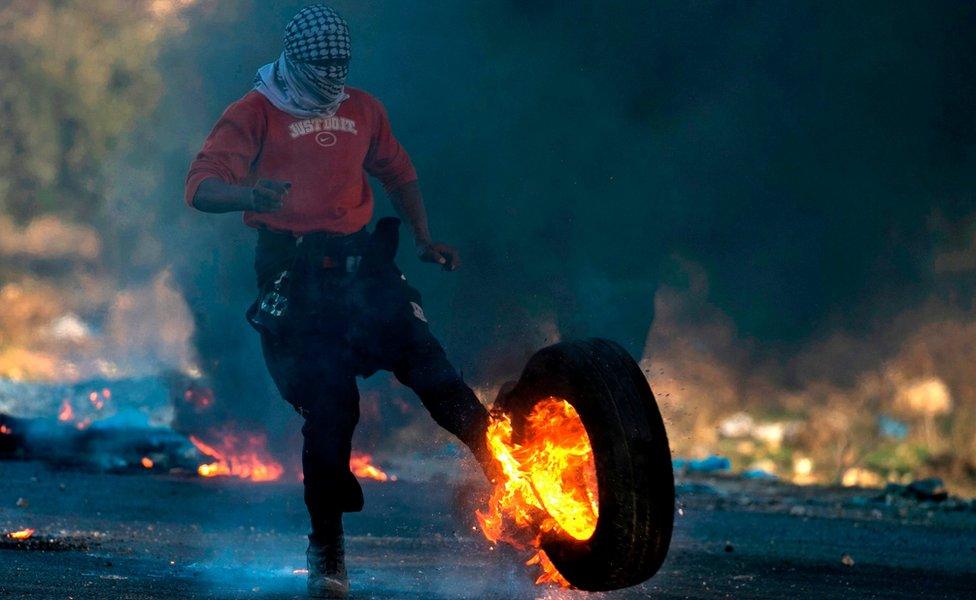
Clashes occurred in the West Bank town of Nablus on Saturday

Why Jerusalem is so important
Jerusalem is of huge importance to both Israel and the Palestinians. It contains sites sacred to the three major monotheistic faiths - Judaism, Islam and Christianity.
Israel occupied the eastern sector - previously occupied by Jordan - in 1967, and annexed it in 1980, but the move has never been recognised internationally.
Why the ancient city of Jerusalem is so important
Some 330,000 Palestinians live in East Jerusalem, along with about 200,000 Israeli Jews in a dozen settlements there. The settlements are considered illegal under international law, though Israel does not regard them as settlements but legitimate neighbourhoods.
According to the 1993 Israel-Palestinian peace accords, the final status of Jerusalem is meant to be discussed in the latter stages of peace talks.
The last round of talks between Israel and the Palestinians broke down in 2014 and while the US is formulating fresh proposals, Palestinian officials have said Mr Trump's announcement has disqualified the US from brokering future negotiations.
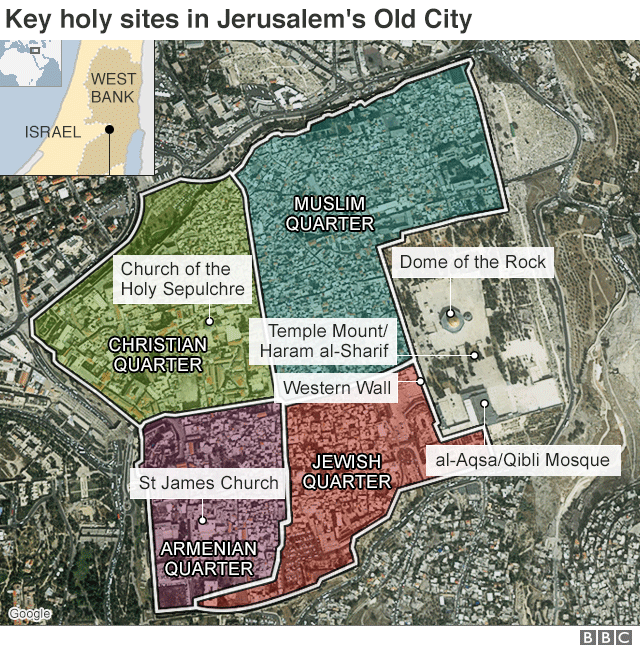
- Published8 December 2017

- Published8 December 2017
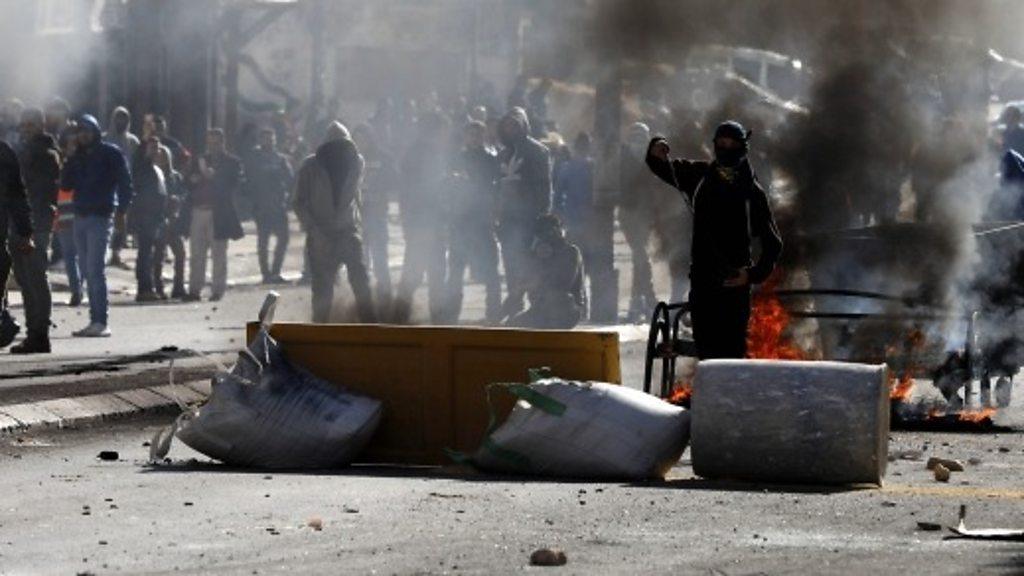
- Published7 December 2017
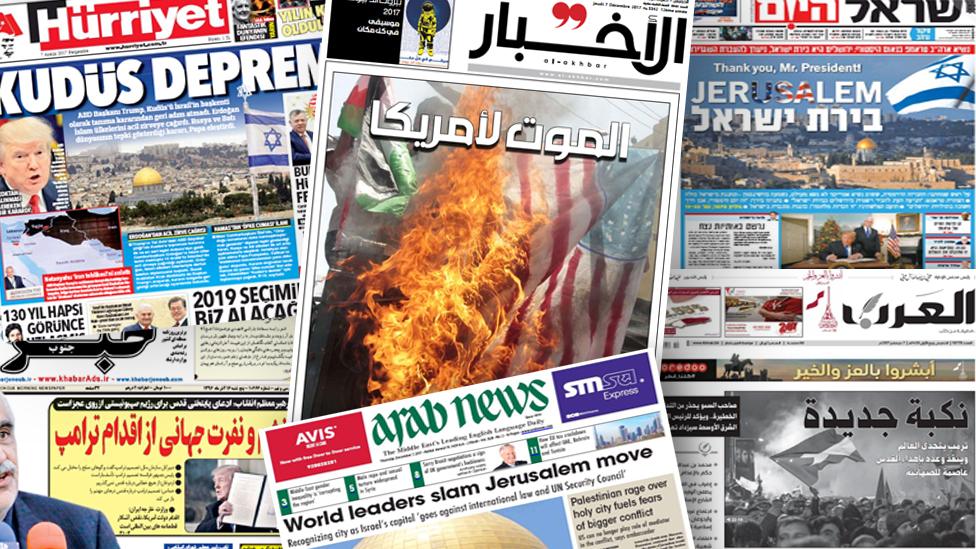
- Published7 December 2017
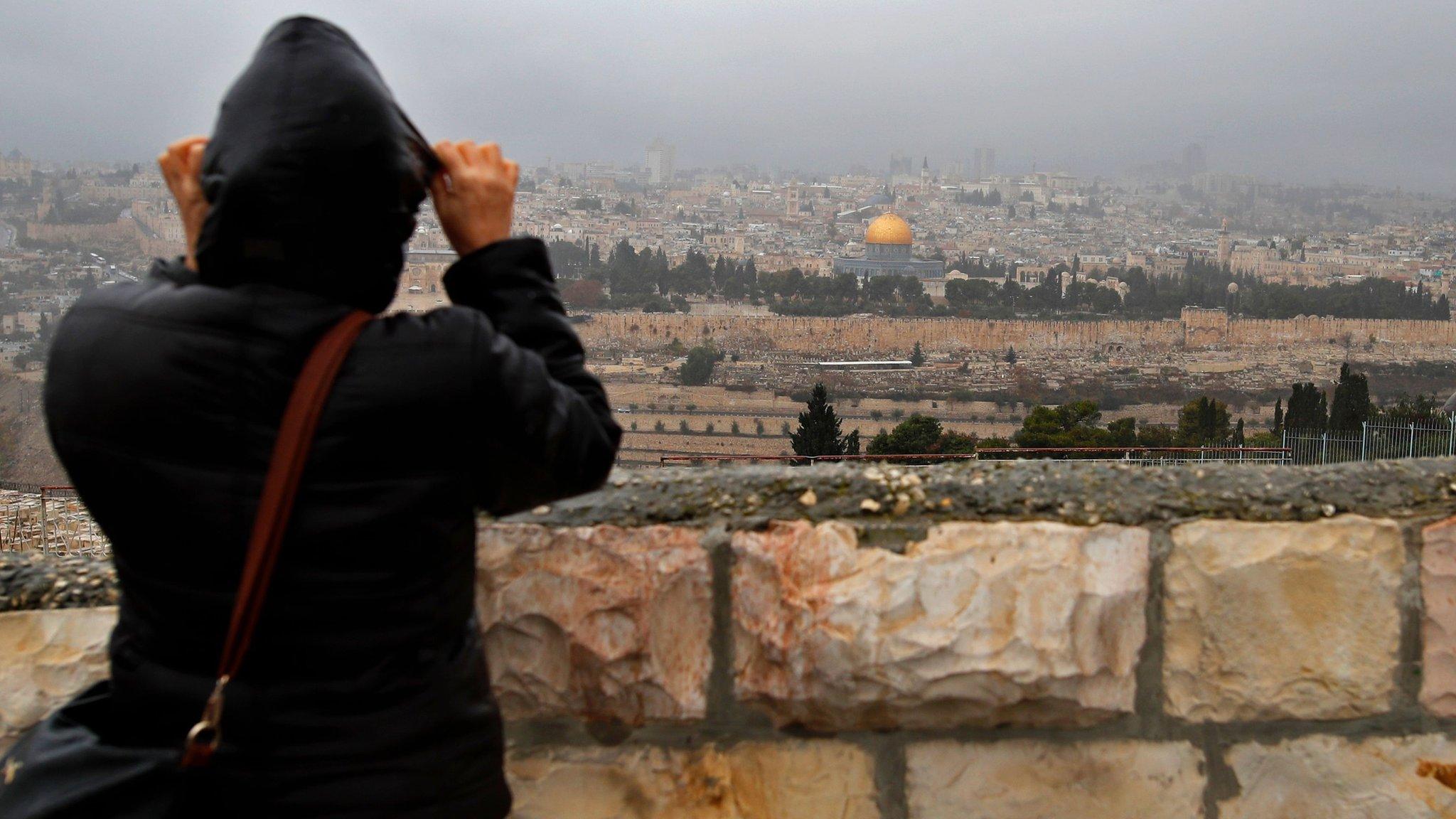
- Published6 December 2017
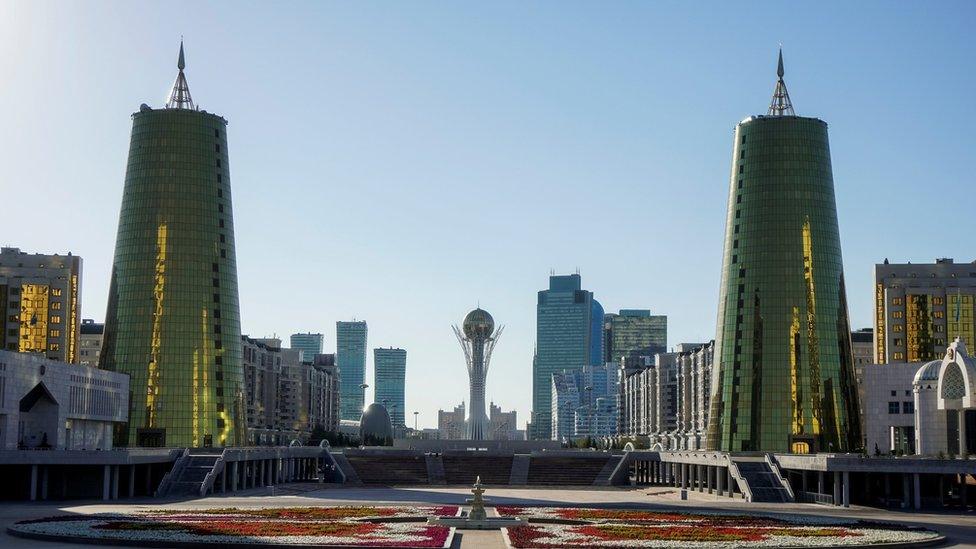
- Published14 May 2018
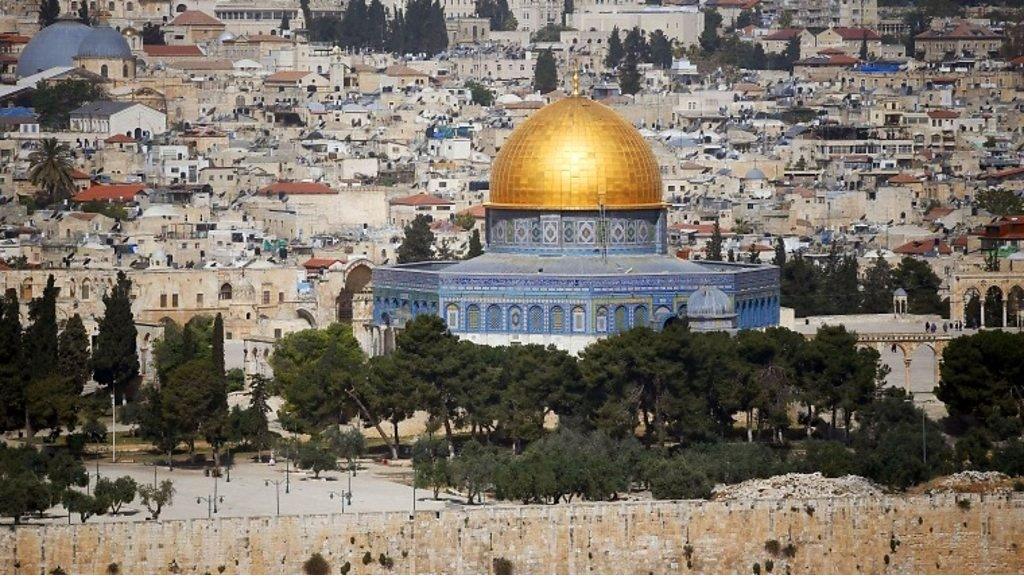
- Published30 October 2014
